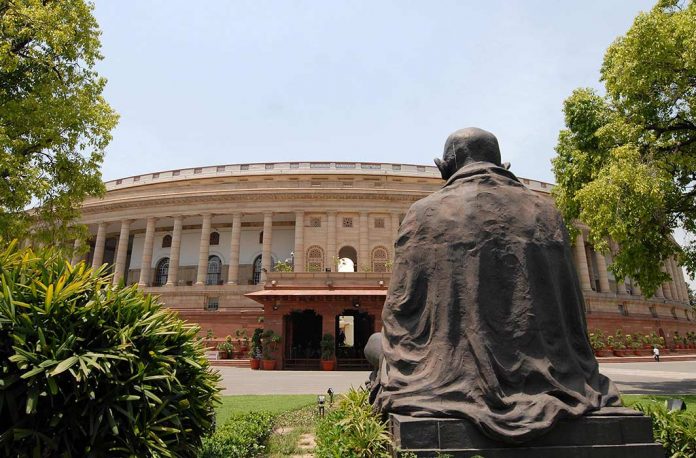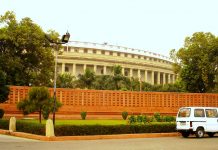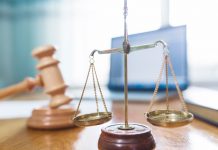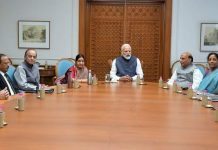This article is written by Nandini Biswas, a student studying BBA LLB from Narsee Monjee Institute of Management Studies (NMIMS) School of Law, Bangalore. This article explains both the forms of governance and suggests which is an effective form of governance.
Table of Contents
Introduction
When a country is to be defined, it is done so by looking at its merits and achievements like the Gross Domestic Product (GDP) and its annual growth, amount of foreign investments made, per capita income, national income, happiness index, the effectiveness of laws and legislation adopted by the country, etc. A country can achieve its maximum capacity on the basis of two things, one, the attitude of the citizens, and two, its governance. It would not be wrong to say that the former depends a lot on the latter. We can safely deduce that the key to the high level of achievements of a country can be primarily based on the kind of governance that the country adopts.
There are different forms of governance throughout the world. However, broadly, they can be categorized into 4 major types- monarchy, democracy, totalitarianism, and dictatorship. Let us understand the brief functioning of each with examples.
Let us assume that a group of friends is playing gully cricket. Now, this can take place in various ways. In the first case, only one boy brings the bat and keeps on batting even after getting out since, it is his bat, so he has the power. Further, he also lets his best friend do the same, and when he does not want to play, he takes the bat and goes away. This boy can be termed as a ‘boss-bully’. In the next case, all the friends elect one person as their captain who ensures that everyone gets equal opportunities to play and plays fair. If the captain tries to play foul, the team members decide not to make him the captain the next time. In another case, there is a coach who is supposed to guide the boys but instead just declares what each of the boys is supposed to do. For eg, A should only bat, B should be the wicket-keeper, etc. No choices are given to the boys. Also, none of the boys gets a chance to express whether they wanted him as the coach or not.
If we compare these with the forms of government, the boss-bully will be the dictator, the second scenario can be compared to democracy, the third scenario describes totalitarianism. If the playground is owned by one of the boys, then the kind of power he will have will be similar to that of a monarchy.
Democracy
‘’Government of the people, by the people and for the people’’
Does this ring in the word ‘democracy’? Democracy is aptly described by this slogan.
This form of government is currently the most popular form of government. As stated in the example, this form of government allows its citizens to elect representatives who will be assuming power and making all the decisions for the country. This form of government works on the principle that the citizens should have the power and the right to decide who can make decisions that would affect their lives. This is the main crux of democracy. The leaders are chosen on the basis of majority, that is whoever gets the maximum number of votes wins the election.
Characteristics
Majority rule
All the decisions taken are in accordance with the majority. Starting from electing a party into power to the government deciding policies and laws for the country, everything happens with a majority rule. This further ensures that since the majority of the people agree on a particular thing, it will be beneficial for the people at large.
Elections
The main element of democratic governance is the way in which the elections are conducted. All the adult citizens of the country are allowed to vote and choose a party which according to them should form the government. This characteristic gives every eligible citizen the right to vote and choose the representative who will represent them. Thus, elections in a democratic are ideally in a free and fair manner. Such elections take place at regular intervals.
Another important aspect of the election under a democratic system is that there is no restriction as to how many parties can contest for election. There is no upper limit cap. This ensures that a lot of parties contest elections giving citizens a number of options to choose from.
After forming the government, the democratic mechanism keeps its functioning in check by establishing opposition. Opposition parties question the decisions of the government at every step thus, making them accountable for their decisions.
The pillars of democracy
Democracy rests on three important pillars- the legislative, the executive, and the judiciary. All three are independent of each other. This helps them maintain transparency. The core function of the legislative is to make laws that will govern the nation. The executive has to implement the laws made by the legislature. The judiciary is expected to interpret the law and uphold it. Further, it is kept independent of the government so as to make the functioning of the judiciary transparent. The judiciary also has the power to punish anyone who violates the law. The judiciary can further declare any laws made by the legislation or any act of the executive done to implement the laws as unconstitutional if it is not in accordance with the Constitution.
Law and justice
Everyone is subjected to the same law and the same justice delivery system. There are no biases or preferences given to anyone. All the citizens are equal before the law and treated equally. Though there might be some exceptions, these exceptions are made on reasonable grounds. Law is considered to be supreme. No one is above the law.
Rights and freedom
The citizens enjoy various rights. These rights vary from country to country. One of the most widely accepted rights is the Right to Freedom of Speech and Expression. Under this right, the citizens can voice their opinion even if that is contrary to that of the government. This gives birth to free media and press. Free media and the press have the power to throw light on the functioning of the government and its effectiveness. This helps the citizens to analyze if the government is working properly or not.
Diversity
Democracy respects all religions equally and does not promote or propagate any one religion. This allows diversity to bloom. A democratic country will often have a multilingual population thriving in its territory. A democratic country will, therefore, give its citizens the Right to Religion, that is, they can practice and profess any religion.
Decentralization
The powers of the government are not concentrated on one hand, rather it is distributed to various branches and sub-branches of the government. The power vests in a decentralized manner among the officials. In a decentralized system, smaller governing bodies are formed who have the power to take political decisions at the local level for their jurisdiction. Political decentralization seeks to address societal issues by handing the citizens increased power through an elected representative government. Depending on the country, political decentralization may pertain to constitutional or statutory reforms, the creation of local political unions or new political parties, and so on. Moreover, in the case that a part of the legislative body becomes corrupted, the decentralized system can easily throw it out.
Advantages
Too much power in the hands of one or few leads to misuse of power or overburden of responsibilities. Democracy prevents these. With its decentralized mechanism, it creates authorities at every level who have some powers to make decisions. This makes work efficient and also creates less burden on the top authorities. The work of the lower authorities is reviewed periodically by the higher authorities.
Moreover, the top authorities taking decisions for the country do not know what people at different levels need. These local authorities have direct contact with the people of their jurisdiction. They also understand the local, political, social, and economical needs and aspects of the area. The local bodies can, therefore, represent the interests of the people at various levels and help the centre make better decisions.
Democracy has a good ‘checks and balances’ mechanism. The citizens of the country are the ones who mark the government and decide if they are working in accordance with the needs of the society and how effective are the decisions and the policies that they come out with. Such a mechanism is facilitated by the freedom of the press, yet another feature of democracy. If the citizens dislike the work of the government, they have the option to not vote for that party again. This very fear of not being in power again makes the government work to the best of their capabilities. This, in turn, helps the citizens and the country grow.
Disadvantages
Like every coin has two sides, the very advantage of a democratic government has a disadvantage too. Distribution of power is an advantage that the citizens of a democratically functioning nation enjoy. The same distribution of power has a flip side as well.
When powers are divided, all the people having powers are included in the decision-making process. This might delay the process since everyone will have a different perspective and each of them will like the inclusion of their perspective in the decisions that are taken. In order to do so, they might keep on opposing the proposed decisions until they feel that their perspective is also considered. While this is good in a way as it ensures that a wholesome decision is taken, it delays the decision-making process that might take a toll when it comes to making urgent decisions.
Areas that are developing and need to be urgently monitored or legally backed up, delay in decision making, and coming up with viable solutions can be harmful and bad for society in general.
Totalitarianism
‘’All within the state, none outside the state, none against the state’’.
Does this ring in the word ‘Totalitarianism’? Totalitarianism is aptly described by this slogan.
This form of government controls all aspects of the personal and private life of its citizens. The totalitarian state pursues some special goal, such as industrialization, and in the bit of attaining that goal, it excludes all others. All resources are directed toward its attainment, regardless of the cost. Whatever might further the goal is supported; whatever might hinder the attainment of the goal, be it the something as crucial as human development as social beings, is rejected. This obsession gives birth to an ideology that explains everything in terms of the goal, rationalizing all obstacles that may arise and all forces that may contend with the state. Any dissent is branded evil, and internal political differences are not permitted because the pursuit of the goal is the only ideological foundation for the totalitarian state. Large-scale organized violence becomes permissible and sometimes necessary under totalitarian rule, justified by the overriding commitment to the state ideology and pursuit of the state’s goal.
Characteristics
Creation of an ideology
The totalitarian regime creates an ideology and makes its citizens accept it, either willingly or forcefully. This ideology makes the nation achieve its goal. But this ideology is rigid and has no flexibility. The ideology does not consider the life of its citizens and is of an intruding nature. The ideology outlines the life of its citizens and often restricts them from doing anything outside the scope of the designated outline. The ideology further attempts to establish discipline but little does it consider that the discipline that it seeks to establish intervenes with their private and personal interests.
Attainment of goals
Totalitarianism is driven by the attainment of goals that are set by such a government. If the aim is to boost the economy, all the policies will be framed to achieve this. But, this generally neglects the interests of the citizens and supersedes the same. Though the goal is attained, it is attained at the cost of loss of interest of its citizens.
Control citizens
When citizens find it difficult to comply with the totalitarian ideology, they start to rebel against it. At this point, terror is used to controlling them. Acts of violence and forms of terror speed up across the nation and the fear so instilled in the minds of the citizens coerce them to comply with the ideology. Controlling citizens is important for the totalitarian regime to achieve its set objective.
Intolerance
Totalitarian regimes do not tolerate dissenting or even alternative views. Those who promote such views are usually dealt with very harshly. There is little independent media in a totalitarian state; every TV channel, radio station, and newspaper is merely a state mouthpiece used to further indoctrinate society. There are no elections since opposing views are illegal. Such regimes also control all means of communication. Emails, letters, and phone calls, for example, are closely monitored so that opposition can be wiped out before it spreads.
Planned economy
An unregulated economy is a danger to totalitarian power, so every aspect of the state economy is planned. Farmers are told how much of and which crop to plant, while private enterprise if it exists at all, is very closely regulated to suit the needs of the state. The goal is constant economic growth (or at least stability) so that the public is kept content and the regime’s ruling measures are sustained. This impacts the economy positively since everything is planned and the resources are utilized accordingly.
Advantages
Totalitarianism envisages a goal and makes all possible attempts to accomplish it. This keeps their economy growing and the nation progressing. These governments take up small problematic sectors and try to fix the issues. This helps them resolve all the discrepancies efficiently and effectively. When the goal is determined, all the policies and rules that the government comes up with deals with the attainment of such goals. Thus, swift and quick progress is witnessed.
This regime also does not allow opposite views to thrive. This ensures that there are no hurdles in the accomplishment of the set goals and there is also no delay in doing so. This not only develops the country but also increases the standard of living of the citizens.
Disadvantages
Like mentioned earlier, the advantages can also have a disadvantage. The very regime of setting up goals and achieving it has a negative side. While setting up targets and achieving them makes the country grow, it leaves its citizens with no privacy.
In order to achieve the set goals, the totalitarian government adopts measures and policies that control the private and personal life of the citizens. They do not give any freedom of choice to the citizens and if they try to voice their opinions against the government, they are suppressed by terror. Such governments also do not give any kind of freedom to its press and media by monitoring all its content. If the government finds any content that is inappropriate (against them), they are not allowed to run that content over the television.
Citizens in these countries do not have any choice and all their private and personal decisions are subject to the hindrances of the government.
Conclusion
Every form of governance is unique to its own self. Each one of them has their own sets of glories and pitfalls. The point to be accounted for is, the weightage and the extent of the pros and cons of each form so as to understand which is a better form of government. It is crucial to know which form of government is better.
To start with, let us come to terms with the fact that none of the two discussed above is perfect, and adopting either will have a certain kind of negative impact. So now, if the pros and cons of both the forms are considered, the choice between freedom of the citizens along with non-hindrance in their private life and growth of the country along with its development has to be considered. The question now stands, which one ways more- privacy and freedom of citizens or growth and development of the country?
While the time-taking decision mechanism is not that big an issue, hindrance in the private life of its citizens is. On one hand, a democratic form of distribution of powers can ensure effective decisions and on the other hand, the policy of adopting a certain target and achieving it can ensure better and faster progress of the country.
If we analyze the characteristics of both the forms, we can see that a democracy with a little change can deliver the privacy and freedom of citizens along with the growth and development of the country. For this, it has to adopt two of the characteristics of the totalitarian regime, that is- the attainment of a goal and a planned economy as described in this article. But, this adoption should not be rigid, it should have a more liberal approach. In this way, the citizens will also be happy and the country will also progress.
A liberal approach means that the government should have due respect for its citizens’ privacy and should not dictate the terms of their decisions in order to achieve its goal. Goals can be achieved through effective legislation. Democracy is capable of producing such effective legislation with its feature of decentralization of powers. The local bodies can identify the problems persisting in their jurisdiction and come up with solutions accordingly. Such solutions can be monitored and altered by the Central government from time to time. Further, if the top authorities feel that the issue needs more attention, it can step in and regulate.
In this way, citizens are also happy and the country all climbs the ladder of progress. Thus, the suggestion would be to adopt democracy along with these certain features of totalitarianism to make the system of governance efficient and effective.
References
- https://www.marketing91.com/characteristics-of-democracy/
- https://classroom.synonym.com/listing-characteristics-totalitarian-government-14893.html
- https://greengarageblog.org/16-significant-advantages-and-disadvantages-of-democracy
- https://www.britannica.com/topic/totalitarianism
LawSikho has created a telegram group for exchanging legal knowledge, referrals and various opportunities. You can click on this link and join:
 Serato DJ Crack 2025Serato DJ PRO Crack
Serato DJ Crack 2025Serato DJ PRO Crack











 Allow notifications
Allow notifications


